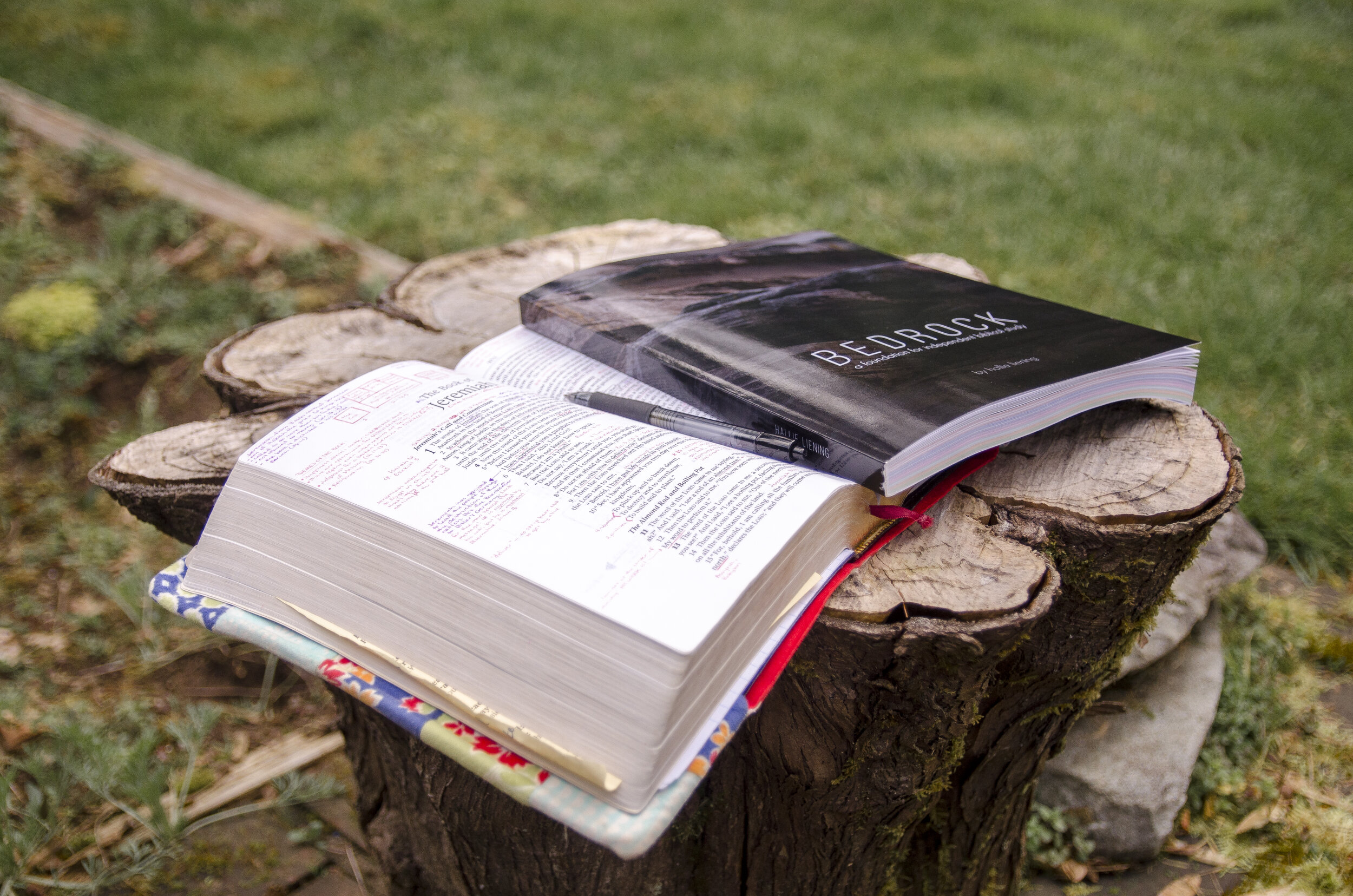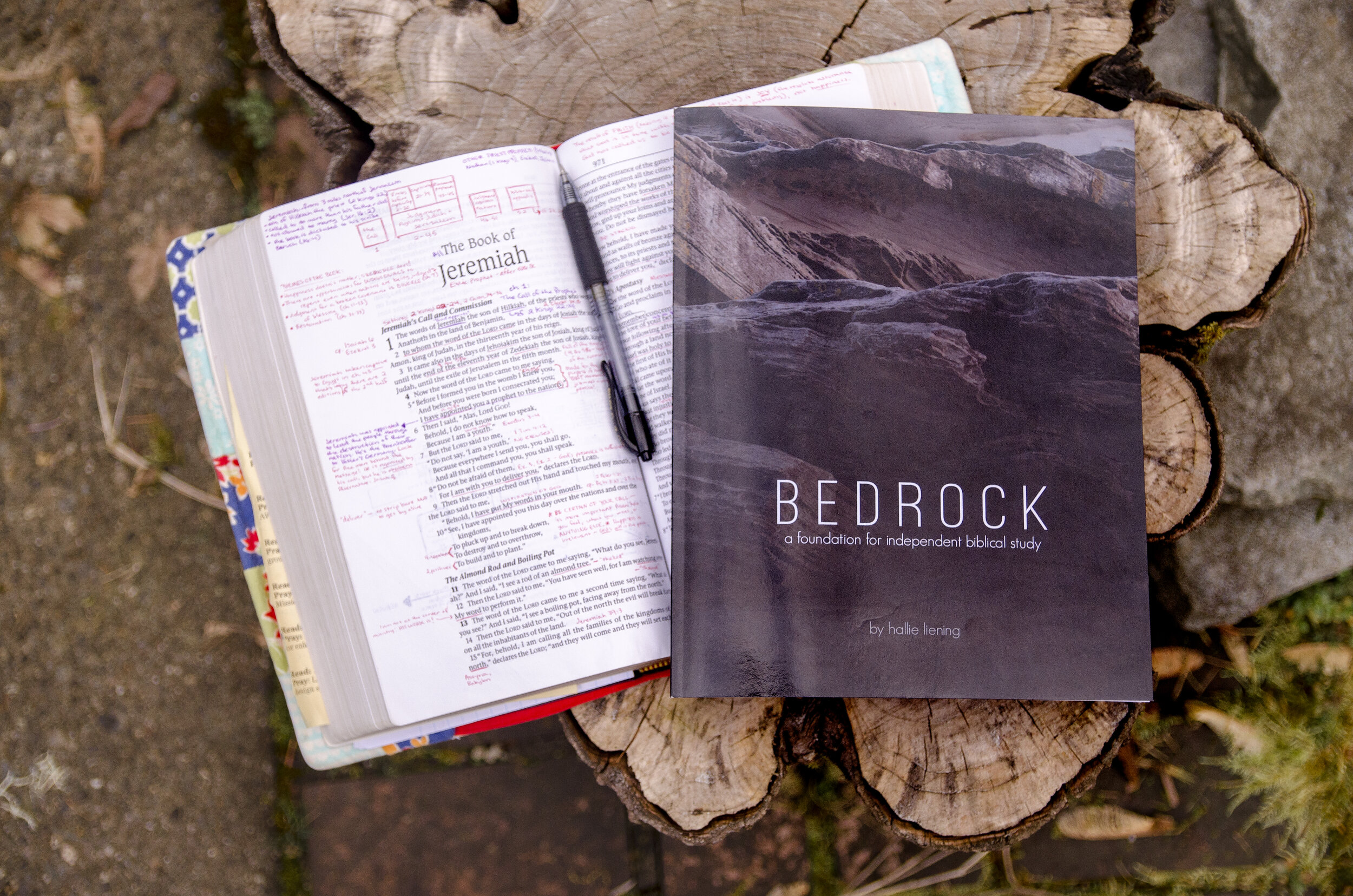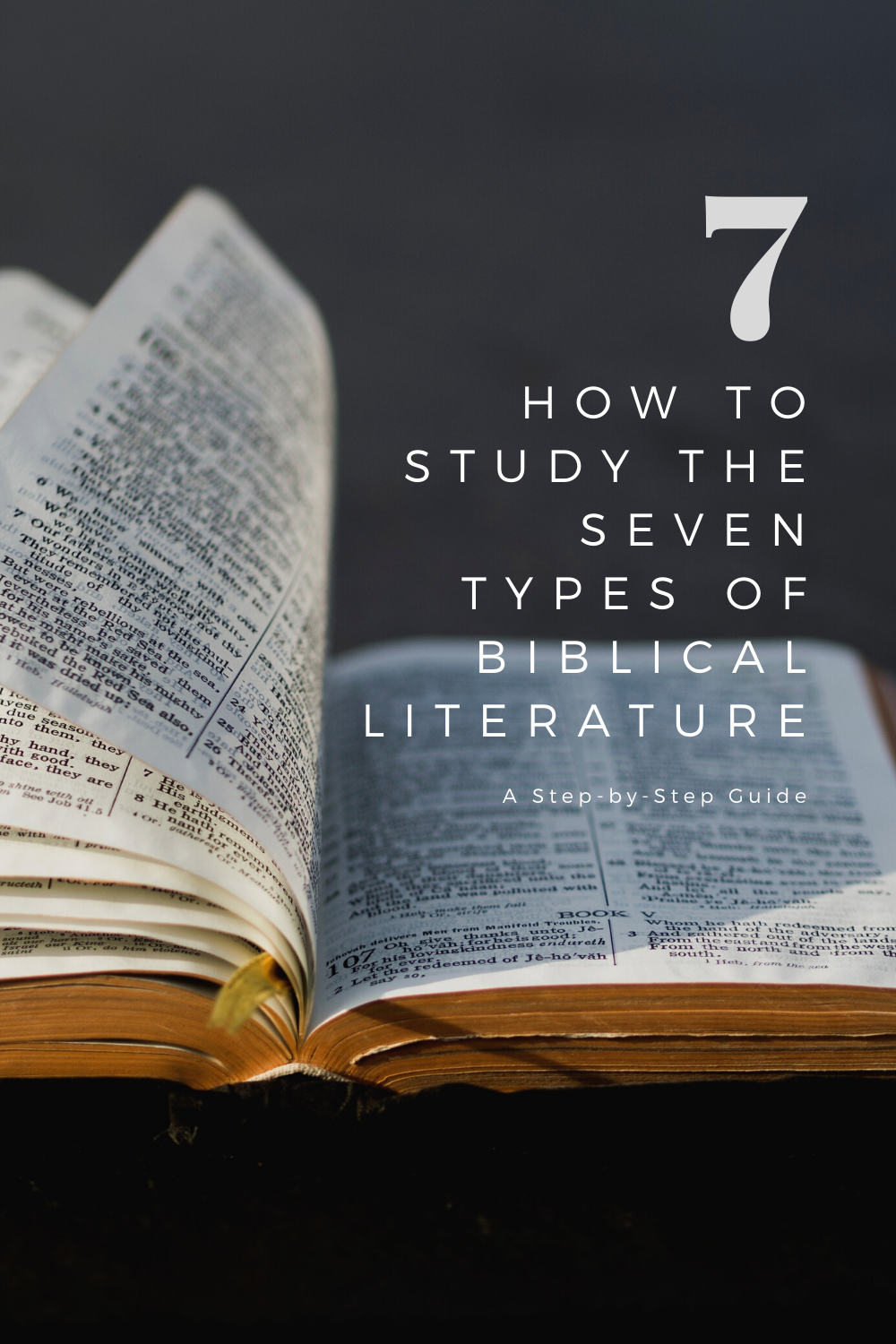bedrock
/Two years ago I began to write, at long last, the book that had been waiting patiently inside my head since Bible school. Forty-five thousand words, dozens of rewrites, two cover designs, and three different formats later, it is finally complete.
Bedrock: A Foundation for Independent Biblical Study is now available on Amazon.
What is it? It’s a textbook and a workbook wrapped into one. It’s a journey through each of the seven types of Biblical literature using both concrete steps and Spirit-led study. It’s dense with practical instruction, but brightened with color and peppered with activities. It is a book for those who want to unearth the bedrock truth of who God is, because who God is changes everything about who we know ourselves to be and how we see our circumstances.
Bedrock is comprised of eight modules:
Module One: What is the Bible?
Module Two: The Study of Narrative
Module Three: The Study of Law
Module Four: The Study of Wisdom
Module Five: The Study of Poetry
Module Six: The Study of Lament
Module Seven: The Study of Prophecy
Module Eight: The Study of Epistle
The first module is designed to address some of the common preconceptions and blind spots of a would-be Bible student living in the postmodern Western world. From there, each of the seven remaining modules acts as a guide through a particular passage, with the goal of teaching a replicable study process that can be taken to any other passage of Scripture within that genre. In Module Two, for example, the student will thoroughly understand and break down the story of Gideon in Judges 6-8, but the same steps can be used to explore any other passage of narrative literature.
I wrote this book to be a little bit like Bible school for those who have never been to Bible school. To help you, no matter who you are or how much background you have with Scripture, independently discover and understand the timeless truths of the Bible as the Word of God. Bedrock is an opportunity to step back from the theological minutiae and academic semantics that can so easily distract us from truly knowing God’s heart and instead, take in the whole, sweeping vista of the Bible as a panoramic view of who God is and what He has done across human history.
This book is not an exhaustive work on the topic of the Bible or its interpretation—it’s just one of many resources that exist to help you understand what the Bible is and how to approach it for personal study. It is not a technical or academic book: In fact, it was purposely written to be the opposite, and to welcome believers of all backgrounds into a deeper knowledge of God’s Word. None of the terms or definitions in this book should be taken as scholarly or absolute; they are simply the best way I know how to use the everyday English language to communicate the vital concepts of independent Biblical study.
All that being said, it is a hefty course of study. It is thorough and detailed and will reward those who can give it the time and thought it demands. The beauty of it is that you can take it at whatever pace you wish; you can do it on your own or in a group; you can supplement it with other resources or just use it on its own.
Ultimately, I wrote this book because God put it on my heart, and because I believe He has a vision for how it can be used to help His people know Him more. If you’d like to see it for yourself, click here.








